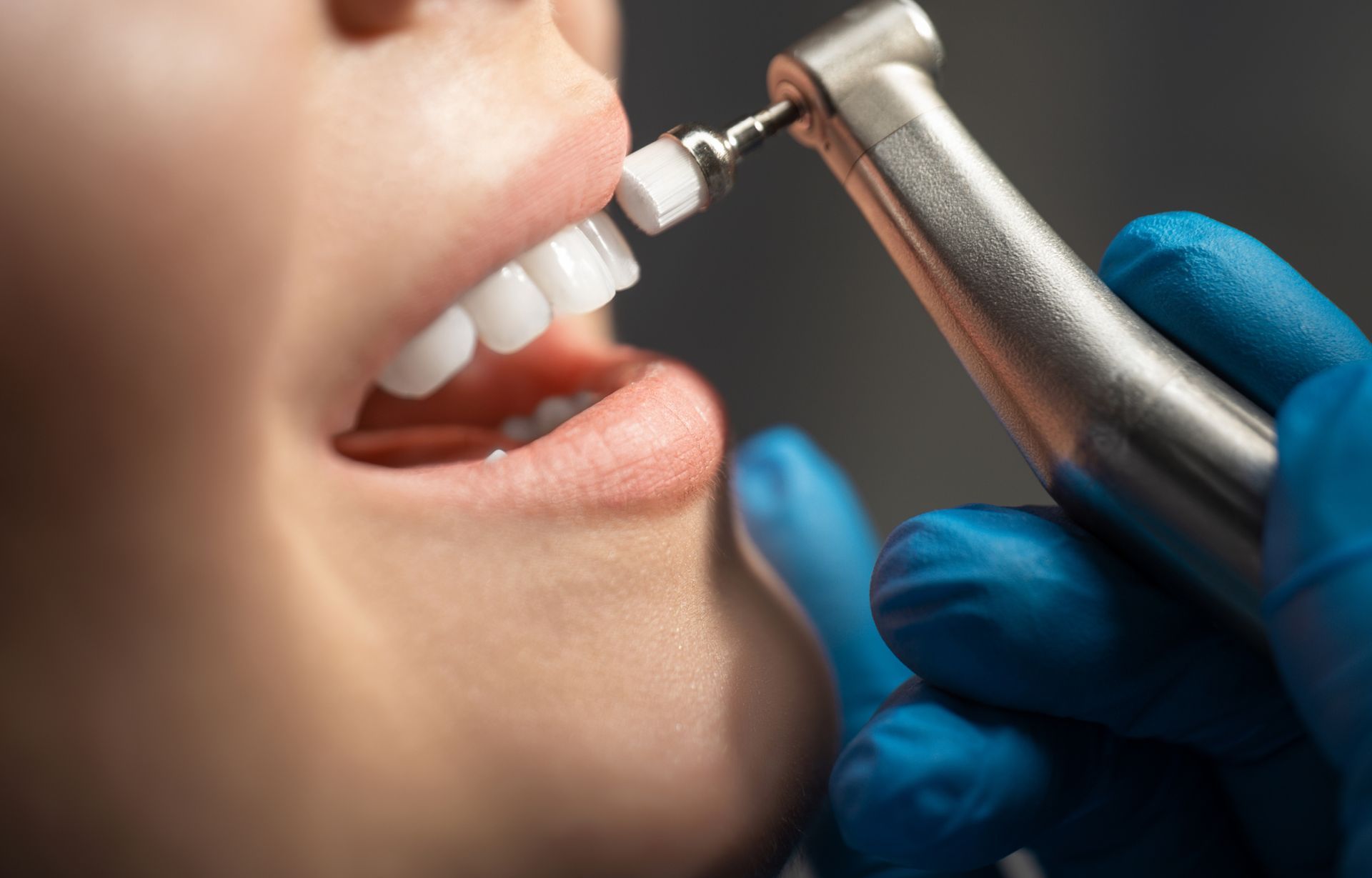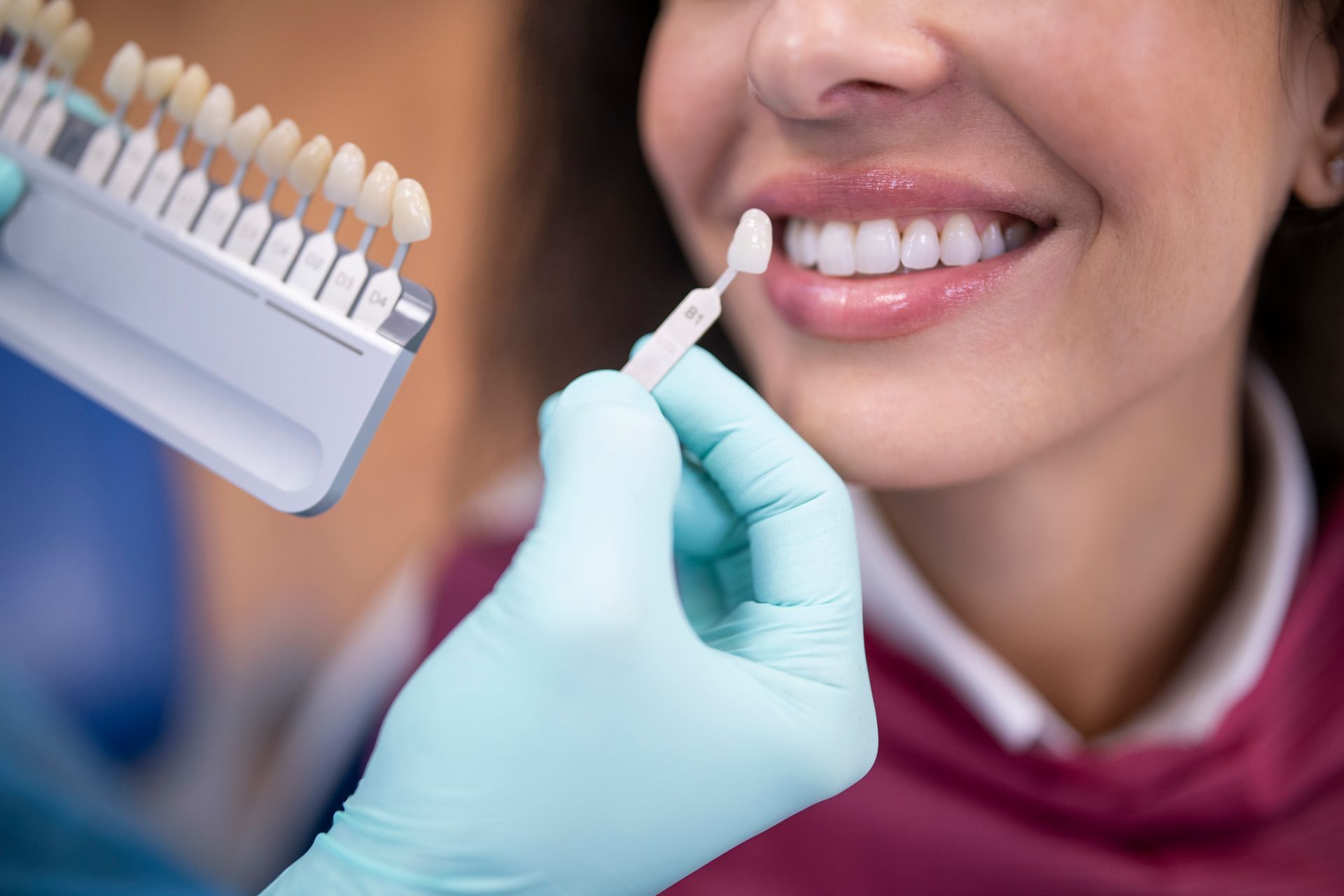Your Guide to Gum Disease Prevention and Treatment

Many Americans struggle with some kind of gum disease. Luckily, you can make changes to reduce the risk of gum disease, and your dentist can help. If you would like to know more, keep reading.
What Is Gum Disease and What Causes It?
Gum disease is an inflammatory disease that affects your gums, but in extreme cases, it can spread to the jawbones. Overall, it is caused by frequent irritation to the gums from bacteria, plaque, and tartar. Further, as gums become irritated, they recede or pull away from the teeth, creating small gaps where bacteria and plaque can get stuck and continue to irritate the gums, hidden from the toothbrush.
One major risk factor for gum disease is poor oral hygiene habits, such as not brushing often enough, not flossing, and skipping dental cleanings. Your diet may also play a role in increasing your risk because foods high in sugar and simple carbohydrates promote more bacteria, plaque, and tartar.
Diseases that may impact your immune system or your body's ability to heal, such as diabetes, may also play a role in your gum disease—especially if the condition is untreated. Since these conditions interfere with your body's immune system, the body can't fight inflammation and infection as well.
Similarly, if you use tobacco, the chemicals may interfere with your immune system. This makes it harder for your body to fight off gum disease. In fact, if you smoke, you have twice the risk of developing gum disease than someone who does not smoke.
How Can You Prevent Gum Disease?
You can do a lot to help reduce your risk of gum disease. First, if you use tobacco in any form, stop. Reducing alcohol consumption may also help if you drink excessively. Similarly, limit your intake of sugar and simple carbohydrates when possible.
Most importantly, however, make sure to have good oral hygiene. Brush your teeth twice a day, and don't neglect flossing. Make sure to see your dentist regularly for cleanings and exams. Cleanings help remove any tartar that can't be removed with regular brushing. During exams, your dentist can look for signs of gum problems.
Lastly, if you have some kind of disease that interferes with your body's ability to heal, talk with your doctor to make sure you're controlling and treating the condition. This should help boost your body's ability to keep the gums healthy.
What Are the Signs of Gum Disease?
In the early stages of gum disease or gingivitis, you may notice that your gums are a little redder than normal. They may bleed or feel tender when you brush and floss. You may also develop pockets between the teeth and gums or notice receding gum tissue.
If left untreated, gingivitis can turn into the more advanced form of gum disease known as periodontitis. At this stage, not only do you have a lot more symptoms, but the disease starts to impact the bone tissue too. Many patients with periodontitis report:
- Red gums
- Tender gums when not brushing and flossing
- Bleeding gums when not brushing and flossing
- Swelling
- Pus
- Bad breath from pus
As the disease continues to destroy the gum and bone tissue, teeth become loose. They may wiggle a little or completely fall out. Tooth loss further impacts the jawbone's health, causing it to weaken faster. In turn, you may lose more teeth.
How Is Gum Disease Treated?
Gum disease treatment may consist of several stages. Naturally, first, the dentist must fight the disease with a combination of cleaning and antibiotics. Deep cleanings clean the pockets and below the gumline, and antibiotics kill the bacteria that irritates the gums. Overtime, with good at-home oral hygiene, the gums heal.
In some cases, the dentist may perform gum flap surgery. During gum flap surgery, the dentist cuts and peels back the gums to expose the tooth roots. The dentist fully cleans and smooths the roots before repositioning the gums. This also works to remove gum pockets because the dentist places the gums flush against the teeth.
Even advanced forms of gum disease have excellent treatment options to restore your smile. If you would like to know more, contact us at Smiles by Hogan today.










